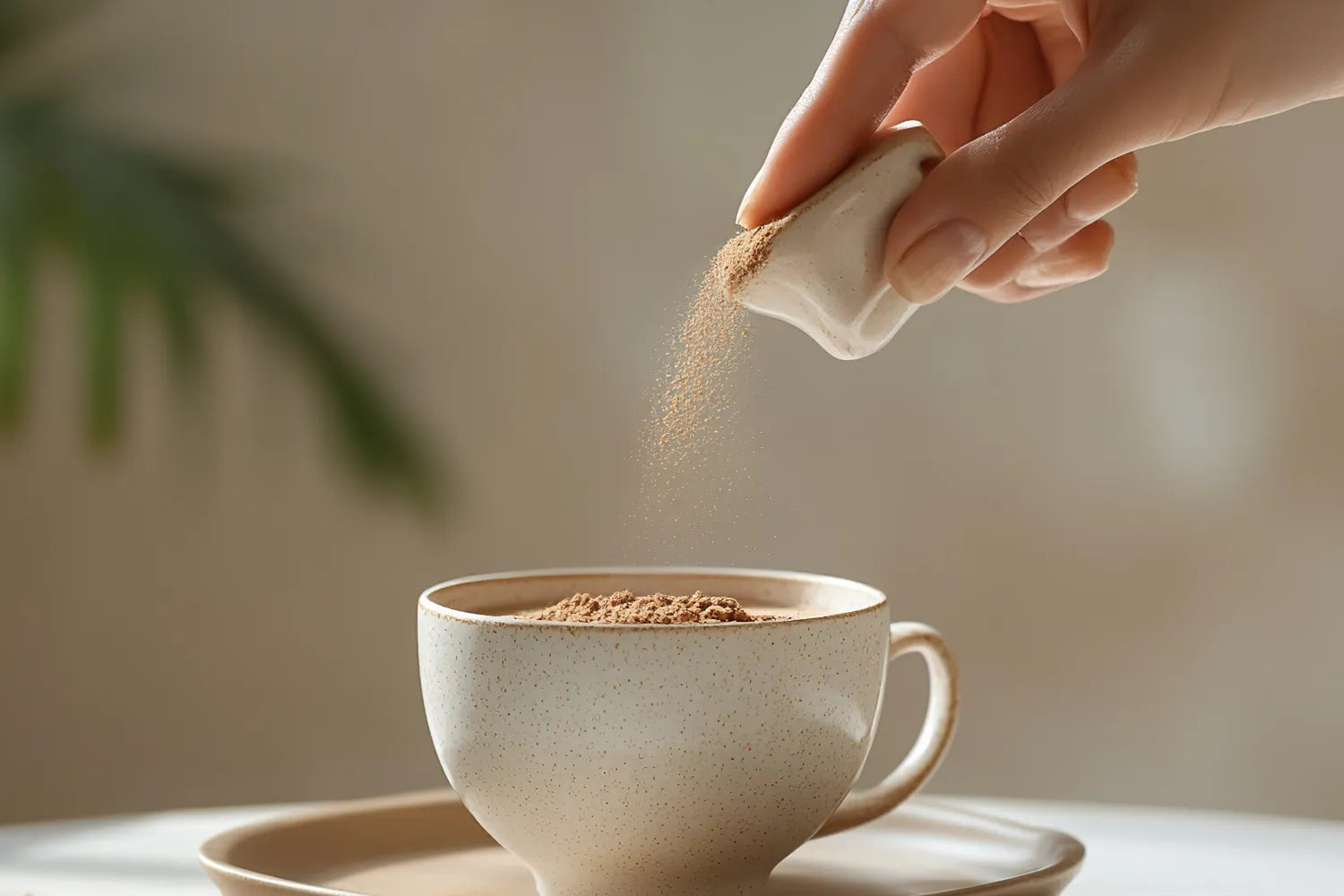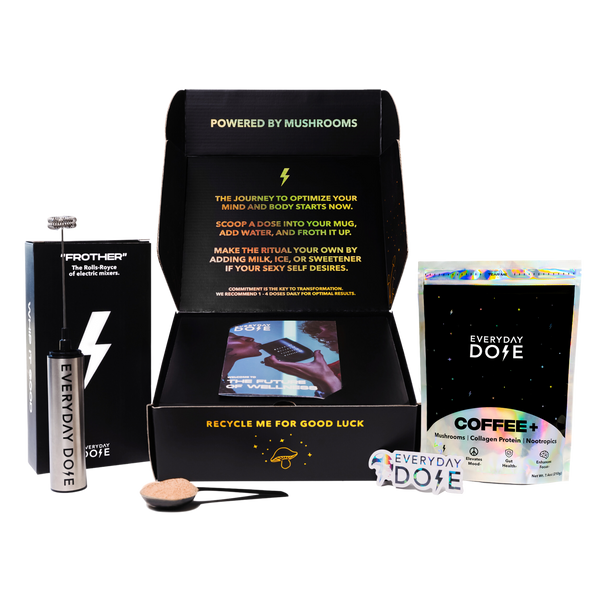The 10 Best Nootropics, According to Experts

We’ve all had moments where we just weren’t operating at the top of our game. Maybe it’s from a lack of sleep, stress at work, or even just simple burnout. In these moments, many of us have probably dreamed of a magic pill that could make all of the fogginess disappear.
We’re still looking for that magic pill — however, nootropics are a pretty close substitute. Read on to learn more about nootropics and which are the best ones to take.
What Are Nootropics?
Nootropics are supplements that can support cognitive function and performance. Because of this, you might also see them called “smart drugs” or “cognitive enhancers.”
There are both natural and synthetic nootropics — both types are generally effective, so the choice is ultimately up to you as far as which way to go.
Most nootropics can support the following benefits:
- Mental clarity
- Memory making
- Task performance
- Focus and attention
- Mental acuity
- Test accuracy
Many natural nootropics generally don’t have side effects, although there are a few exceptions that we’ll talk about in a bit. Synthetic nootropics, on the other hand, tend to come with more side effects because they’re more concentrated.
10 Best Nootropics
Now that we know what nootropics are, we can discuss the best nootropic supplements to take. Most of the supplements on this list are natural or come from natural sources, but we’ll also take a look at some synthetic nootropics and how they’re used.
Before we get started, it’s important to note that you should talk to a healthcare provider before you start taking any of these supplements. While uncommon, some of them may interact with other medications or medical conditions.
1. Caffeine
Is it any wonder that caffeine is the first supplement on our list? Around two billion cups of coffee are consumed around the world each day, and this doesn’t even factor in other caffeinated beverages like tea, energy drinks, and caffeinated sodas. Most people consume caffeine each morning to give themselves energy or borrow focus for an important task.
Caffeine can support energy levels and mental alertness by blocking adenosine receptors in the brain. This neurotransmitter has the important job of helping us feel tired. By keeping it from binding to receptors, caffeine can help push off tiredness. It can also support reaction time by encouraging attention and perception.
2. L-Theanine
L-theanine is an amino acid that can be naturally found in green tea. This supplement can support healthy levels of neurotransmitters like dopamine and serotonin, which can encourage learning and memory-making abilities.
This supplement can also encourage alpha brain waves, which are associated with relaxation and focus. There are many more benefits of L-theanine as well, which is why we’ve included it in our Mushroom Coffee+.
3. Ginkgo Biloba
Ginkgo biloba is the world’s oldest living tree and can be traced back to prehistoric times. An extract of this plant can also slow cognitive decline related to conditions like Alzheimer’s disease, especially in older adults.
One randomized, double-blind, placebo-controlled clinical trial also found that taking Ginkgo biloba extract helped increase mental processing speed, working memory, and overall mental performance in healthy individuals.
4. Lion’s Mane Mushroom
Lion’s mane mushroom is a white, fuzzy mushroom that grows in moderate climates throughout the United States, Canada, Europe, and Asia. This mushroom can support the body’s production of nerve growth factor (NGF), which can support overall brain health.
This mushroom can also encourage cognitive performance and balanced mental health, thanks to its antioxidant properties and other beneficial compounds. This is just one of many reasons why we’ve made it one of the star ingredients in all of our mushroom blends.
6. Bacopa Monnieri
Bacopa monnieri can support mental clarity by encouraging healthy levels of acetylcholine, a neurotransmitter that plays a role in mental clarity and memory-making. It can also increase blood flow to the brain, protect brain cells due to antioxidant activity, and mitigate symptoms of cognitive impairment.
7. Rhodiola Rosea
Rhodiola rosea is a popular adaptogen that can help manage feelings of stress. This dietary supplement can also cut through brain fog and increase brain power, specifically when it comes to learning and memory-making. Rhodiola does this by minimizing cellular death in the brain, lowering inflammation, and minimizing free radical damage.
8. Ashwagandha
Ashwagandha is most known for its anti-inflammatory properties and its ability to lower stress, including physical symptoms of stress like blood pressure and heart rate. However, this herb can also increase brain function and reverse some forms of cognitive impairment.
9. Panax Ginseng
Panax ginseng, or Asian ginseng, has been shown to improve focus, reaction time, and relaxation. One study also found that ginseng contributed to significant working memory enhancement, functioning as a brain booster for moments when you need to think a little faster on your feet.
10. Amphetamines
Amphetamines are synthetic nootropics that are often prescribed to treat attention deficit hyperactivity disorder (ADHD). These drugs can help your brain communicate more quickly and increase your mental alertness. The most notable amphetamine is Adderall, which is not available over the counter. In fact, none of these drugs are available without a prescription.
Wrapping Things Up
Nootropics are supplements or medications that can support your brain performance when you need it most. These supplements are for times you want to think a little more clearly, remember things a little more vividly, and focus a little more intently.
Many of these supplements can also have other benefits for overall well-being. For instance, lion’s mane mushroom and L-theanine can have other benefits for mental health, sleep quality, gut health, and more. To learn more about how you can support focus and brain health, visit the Everyday Dose blog today.
Sources:
Coffee Facts | British Coffee Association
Why Does Coffee Make You Tired? | The Sleep Foundation
Effects of caffeine on reaction time are mediated by attentional rather than motor processes | PMC
Neuropharmacological Review of the Nootropic Herb Bacopa monnieri | PMC
Nootropic potential of Ashwagandha leaves: Beyond traditional root extracts | PubMed








